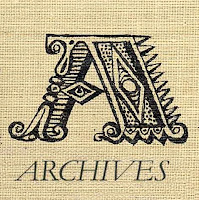In conjunction with Ohio Adoptee Searches I have started a new blog: Ohio Adoptee Searches: News and Views on Ohio Adoptee Rights, Search, and Reunion.
I’m old enough to remember when adoptee rights and search were two sides of the coin, and search tended to lead to activism. (Special thanks to BJ Lifton, Florence Fisher, and Jean Paton) No later than the mid-1980s, though, search had been co-opted by therapists and so-called reform organizations who packed the hearing room with nose blowers with beggars’ bowls, who despite their use of “rights” language, chose reunion over rights. And still do.
The Internet, in many ways, has reinforced this victimization, through hundreds preaching-to-the-choir-misery-loves-company forums, Facebook pages, and blogs. Because I’m so damned old, this strikes me as nonsensical. Back in the day search was subversive. Today it’s become the dead end of change.
To cut the the chase my OAS blog is a forum to stir the pot: educate Ohio adoptee searchers on issues, the politics and language of open records, the history of sealed records in Ohio and past attempts to rescind our tiered system to bring all adoptees under the pre-1964 open access law, practical knowledge on how to navigate the current Ohio system, while at the same time energizing and recruiting people into the movement.on a state level. ( snagged one today!) To bring subversion back into search.
Nothing is happening in the Ohio legislature so far this year. John Kasich is our governor and the majority of legislators are walking around in the pockets of the exact people who engineered the destruction of the last serious attempt to open records here with HB 419: Ohio Right to Life, Janet Folger Porter, and Dr. John Willke, the latter two now heading up Ohio ProLife Action. passing out teddy bears with built-in heartbeats to pols, and pushing the Hearbeat Bill, which if passed, will be the most restrictive anti-abortion law in the country. Need I say more?
Over the next few weeks I’ll be posting historic Ohio documents on the OAS blog. Below is an entry I posted tonight on the 1996 defeat which amended unrestricted access out of HB 419 and created our third access tier that keeps Ohio from ever being a true free state.I’m cross-positing it here for a wider audience and the hope that it can be helpful to Ohio readers and bastards in general as we continue to break open the vaults and let our rights fly free.
I won’t be cross-posting everything from OAS, but anything important, like the piece below I will. Ohio Adoptee Searches has a Faceboook page. I’d love you to: like” it and get some discussion going about Ohio– and for you to spread the word that an Ohio adoptee rights blog and FB page is now up.
In 1995, HB 419, (not online; in my personal possession) an omnibus bill to reform Ohio adoption and foster care law was heard in the Ohio Legislature. One very short section of the bill restored the right of all Ohio adoptees to their original birth certificates by rescinding the post-1963 prohibition. If passed, the state would have once again recognize the right of all Ohio adoptees to equal treatment and due process under state law.
 |
| Willke and Folger Porter 2011, Coumbus |
The end results was the name, though. Adoptees remained second class citizens.
- Reducing the four years it now commonly takes to remove children from foster care and other publicly funded placement and give them a permanent adoptive home. Public children’s services agencies currently have custody of about 3,300 children who could be adopted.
- Hastening the process by ordering courts to render a decision in permanent-custody cases within 200 days.
- Helping foster parents who decide to adopt by counting time spent in foster care toward the six-month probationary period before an adoption is considered final..
- Prohibiting public agencies from delaying adoption based solely on the race of the prospective adoptive family..
- Opening adoption and birth certificates to adopted children when they turn 21 unless birth parents deny access.




